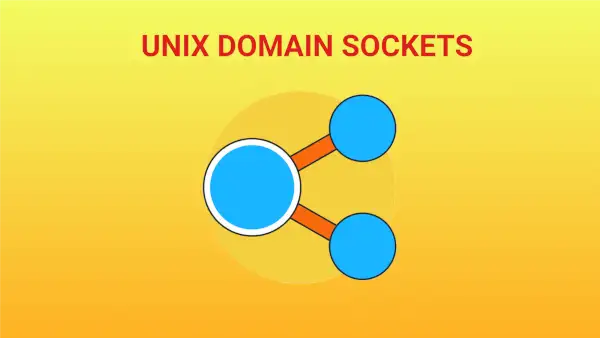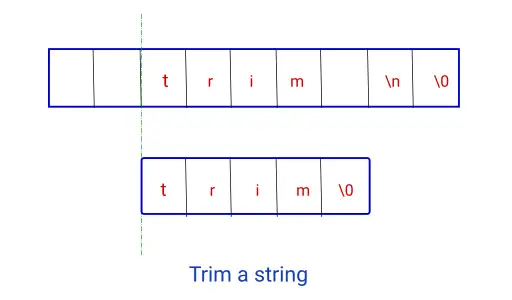 I/O multiplexing: select, poll and epoll in Linux I/O multiplexing is doing I/O with many sources and giving good response. I/O multiplexing is explained with select, poll and epoll calls. Continue Reading
I/O multiplexing: select, poll and epoll in Linux I/O multiplexing is doing I/O with many sources and giving good response. I/O multiplexing is explained with select, poll and epoll calls. Continue Reading POSIX real-time signals in Linux POSIX real-time signals are defined apart from the existing standard signals. The real-time signals are in the range SIGRTMIN to SIGRTMAX. Continue Reading
POSIX real-time signals in Linux POSIX real-time signals are defined apart from the existing standard signals. The real-time signals are in the range SIGRTMIN to SIGRTMAX. Continue Reading How to create a temporary file in Linux Temporary files are often required for storing interim data. How to create a temporary file in a C program is explained with example code. Continue Reading
How to create a temporary file in Linux Temporary files are often required for storing interim data. How to create a temporary file in a C program is explained with example code. Continue Reading Interprocess Communication using Unix Domain Sockets Unix domain sockets provide a fast and simple mechanism for interprocess communication on a Unix-like host system using the socket interface. Continue Reading
Interprocess Communication using Unix Domain Sockets Unix domain sockets provide a fast and simple mechanism for interprocess communication on a Unix-like host system using the socket interface. Continue Reading File I/O in Linux Buffered I/O and synchronized I/O and the input output system calls, open, creat, read, write, lseek, close and unlink are explained. Continue Reading
File I/O in Linux Buffered I/O and synchronized I/O and the input output system calls, open, creat, read, write, lseek, close and unlink are explained. Continue Reading How to trim a string in C How to remove leading and trailing whitespace characters in a string in C language is explained with an example program. Continue Reading
How to trim a string in C How to remove leading and trailing whitespace characters in a string in C language is explained with an example program. Continue Reading Socket programming using the select system call The select system call helps a server monitor sockets of multiple clients for readiness of I/O operations. The select call is explained. Continue Reading
Socket programming using the select system call The select system call helps a server monitor sockets of multiple clients for readiness of I/O operations. The select call is explained. Continue Reading Socket Programming using UDP in C User Datagram Protocol (UDP) is a connectionless communication protocol. UDP is explained with example client server programs. Continue Reading
Socket Programming using UDP in C User Datagram Protocol (UDP) is a connectionless communication protocol. UDP is explained with example client server programs. Continue Reading Socket Programming using TCP in C A socket is a communication end point at a host. Socket programming helps in creating distributed networked applications. Continue Reading
Socket Programming using TCP in C A socket is a communication end point at a host. Socket programming helps in creating distributed networked applications. Continue Reading Signals in Linux Signals are software interrupts that are delivered to a process by the kernel. A signal is a notification about an event that has occurred. Continue Reading
Signals in Linux Signals are software interrupts that are delivered to a process by the kernel. A signal is a notification about an event that has occurred. Continue Reading D-Bus Tutorial D-Bus is a mechanism for interprocess communication for Linux systems. D-Bus concepts along with example client-server programs are explained. Continue Reading
D-Bus Tutorial D-Bus is a mechanism for interprocess communication for Linux systems. D-Bus concepts along with example client-server programs are explained. Continue Reading POSIX Shared Memory in Linux How to do interprocess communication using the POSIX shared memory calls is explained with example client-server programs. Continue Reading
POSIX Shared Memory in Linux How to do interprocess communication using the POSIX shared memory calls is explained with example client-server programs. Continue Reading System V Shared Memory in Linux How to do interprocess communication using the System V shared memory calls is explained with example programs. Continue Reading
System V Shared Memory in Linux How to do interprocess communication using the System V shared memory calls is explained with example programs. Continue Reading Queue implementation in C using a linked list A queue is a common first-in first-out data structure. An implementation of queue in C language using a linked list is explained. Continue Reading
Queue implementation in C using a linked list A queue is a common first-in first-out data structure. An implementation of queue in C language using a linked list is explained. Continue Reading POSIX Threads Synchronization in C POSIX threads, or pthreads, provide multiple flows of execution within a process. pthreads synchronization is explained with example program. Continue Reading
POSIX Threads Synchronization in C POSIX threads, or pthreads, provide multiple flows of execution within a process. pthreads synchronization is explained with example program. Continue Reading